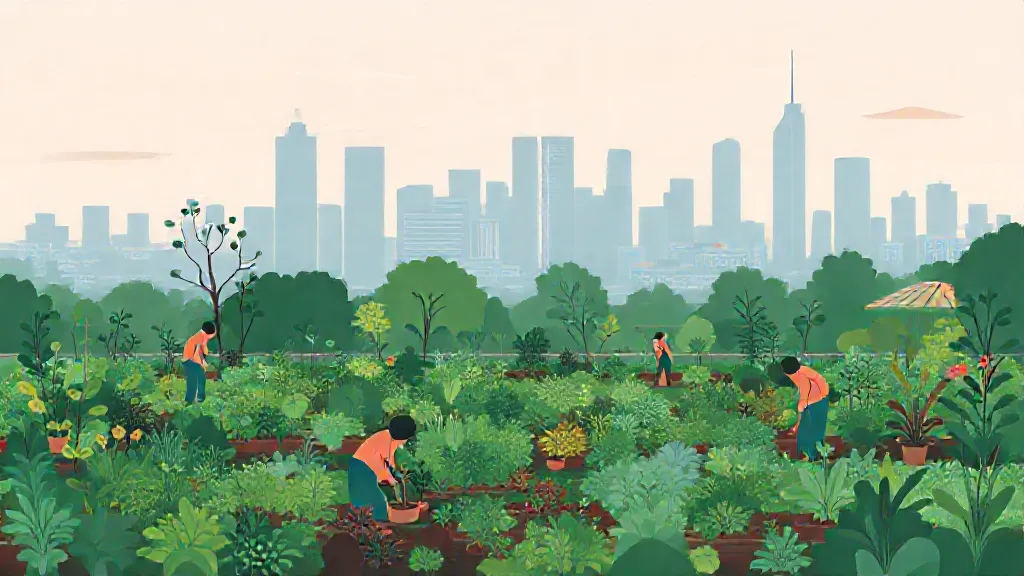Community gardens have emerged as vital green spaces in urban environments, offering a multitude of benefits that extend beyond mere aesthetics. These gardens are not only a source of fresh produce but also serve as hubs for community engagement, environmental sustainability, and social equity. As cities continue to grapple with challenges such as food deserts, pollution, and social isolation, community gardens present innovative solutions that can transform urban landscapes.
The Role of Community Gardens in Food Security
One of the most significant advantages of community gardens is their ability to enhance food security in urban areas. Food deserts, which are regions with limited access to affordable and nutritious food, disproportionately affect low-income communities. By cultivating community gardens, residents can grow their own fruits and vegetables, thereby reducing their dependence on grocery stores that may not offer healthy options.
Studies have shown that access to community gardens increases the availability of fresh produce, leading to improved dietary habits and overall health within neighborhoods.
Promoting Biodiversity and Environmental Health
Community gardens also play a crucial role in promoting biodiversity and improving environmental health. Urban areas are often characterized by concrete and asphalt, which can lead to habitat loss for various species.
By integrating green spaces, community gardens provide essential habitats for pollinators like bees and butterflies, as well as birds and other wildlife. Furthermore, these gardens can enhance urban ecosystems by improving soil quality, reducing stormwater runoff, and mitigating the urban heat island effect, thus contributing to a healthier environment.
Fostering Community Engagement and Social Cohesion
Beyond their environmental and nutritional benefits, community gardens serve as platforms for social interaction and community building.
They provide a space where individuals from diverse backgrounds can come together to work towards a common goal. This collaborative effort fosters a sense of belonging and social cohesion, which is particularly important in urban settings where isolation can be prevalent. Community gardening initiatives often lead to the development of friendships, partnerships, and networks that strengthen community ties and enhance collective resilience.
Educational Opportunities and Skill Development
Community gardens also serve as valuable educational resources. They offer hands-on learning experiences for individuals of all ages, teaching skills related to gardening, nutrition, and environmental stewardship. Many gardens collaborate with local schools and organizations to provide workshops and programs that empower community members with knowledge about sustainable practices and healthy living.
This educational aspect not only enriches the lives of participants but also cultivates a new generation of environmentally conscious citizens.
Economic Benefits and Job Creation
The establishment of community gardens can also have positive economic impacts within urban areas. By providing residents with the opportunity to grow their own food, these gardens can reduce food expenses and increase disposable income.
Additionally, community gardens can create job opportunities through the sale of produce at local markets or through the development of related businesses, such as workshops or eco-tourism initiatives. This economic activity can stimulate local economies and contribute to the overall vitality of neighborhoods.
Cultural Expression and Identity
Community gardens serve as a canvas for cultural expression and identity, allowing individuals to showcase their heritage through the cultivation of traditional crops and gardening practices.
This aspect is particularly significant in multicultural urban environments, where gardens can reflect the diverse backgrounds of their caretakers. By celebrating cultural diversity, community gardens foster mutual respect and understanding among residents, enhancing the social fabric of urban neighborhoods.
Challenges and Solutions in Establishing Community Gardens
Despite their numerous benefits, establishing community gardens is not without challenges.
Issues such as land access, funding, and local regulations can hinder the development of these green spaces. However, many communities have successfully navigated these obstacles by forming coalitions, seeking grants, and advocating for policy changes that support urban agriculture. Collaborative efforts between local governments, non-profits, and community members can create a supportive framework for the growth of community gardens.
The Future of Urban Agriculture and Community Gardens
As urban populations continue to rise, the importance of community gardens in enhancing urban environments will only increase. These gardens represent a sustainable approach to addressing the pressing issues of food security, environmental degradation, and social isolation. By investing in and promoting community gardens, cities can cultivate not only greener spaces but also healthier, more connected, and resilient communities.
The future of urban agriculture lies in the hands of community members who are willing to cultivate change, one garden at a time.
